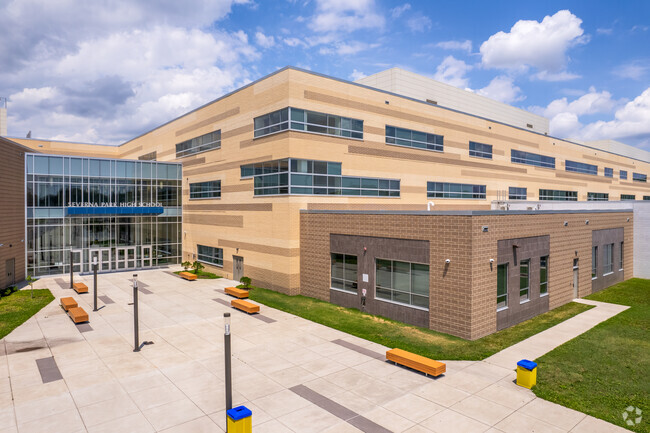The Duty of Moms And Dads and Educators in the Effort to Save Temecula Schools
The Duty of Moms And Dads and Educators in the Effort to Save Temecula Schools
Blog Article
Exactly How Schools Play an Essential Role in Shaping Future Leaders and Innovators
By incorporating project-based discovering and interdisciplinary studies, instructional institutions test trainees to evaluate and manufacture intricate information. Teachers offer as mentors, leading students and nurturing their possibility, while extracurricular activities even more develop leadership abilities and resilience.
Cultivating Important Believing
In today's swiftly developing world, cultivating essential thinking within schools has ended up being critical. As culture comes to grips with increasingly intricate international difficulties, the ability to analyze, assess, and synthesize details is necessary. Schools play an essential duty in creating these skills, preparing pupils to browse and attend to multifaceted troubles with notified, reasoned choices.
To cultivate critical thinking, educators employ various pedagogical strategies that encourage active discovering and intellectual engagement. Classroom conversations, problem-based learning, and Socratic examining contribute in advertising reflective and logical mind. By testing trainees to interrogate presumptions and consider numerous perspectives, these approaches ensure a deeper understanding of topic past memorizing memorization.
Additionally, integrating crucial thinking throughout the curriculum enhances its importance and applicability in varied contexts. Subjects such as maths, science, background, and literature each deal special possibilities to create trainees' vital professors. Examining historic occasions calls for comprehending and evaluating sources context, while clinical inquiry needs rigorous theory testing and evidence-based reasoning.
Eventually, instilling important thinking skills in students furnishes them with the cognitive tools essential for long-lasting knowing and versatility. It is with this fundamental proficiency that future leaders will have the ability to innovate, resolve issues, and contribute meaningfully to culture.
Urging Imagination
Welcoming creativity within instructional structures galvanizes students to think beyond traditional borders and explore innovative services. By incorporating artistic undertakings and creativity workouts into the educational program, colleges cultivate an environment where originality and creative idea are valued. This technique not only enhances the instructional experience but likewise equips trainees with the ability to tackle real-world difficulties in novel methods.
Educational organizations can promote creativity with varied ways such as project-based discovering, interdisciplinary researches, and the consolidation of arts and modern technology. Project-based learning, as an example, motivates students to use their expertise in practical, frequently collective, projects that require creative problem-solving skills. Interdisciplinary studies permit trainees to draw connections in between different subjects, therefore expanding their viewpoints and improving their innovative abilities.
In addition, offering pupils with opportunities to engage with emerging technologies, such as coding and electronic style, further nurtures their innovative capacity. These tasks motivate pupils to experiment, fall short, and iterate, which are crucial components of the imaginative procedure (Save Temecula Schools). By preserving a supportive environment where trial and error is urged, schools can ensure that trainees establish the confidence to go after innovative concepts
Basically, supporting creativity in educational setups is important for shaping future leaders and pioneers with the ability of attending to complex worldwide issues with resourcefulness.
Promoting Collaboration

Executing group-based knowing modules and participating jobs allows pupils to experience the characteristics of teamwork firsthand. This not only prepares them for the joint nature of modern work environments however likewise supports management top qualities as they typically need to take on duties such as task supervisors or group planners. In addition, cooperation in the classroom can break down social barriers and advertise inclusivity, making certain that each pupil really feels valued and heard.
In addition, incorporating innovation can better sustain collective initiatives. Tools like shared interactive platforms and digital offices make it possible for pupils to interact efficiently, even outside the class. As pupils create these joint skills, they are better furnished to tackle intricate difficulties and innovate, laying the groundwork for their future roles as leaders and pioneers.
Role of Teachers as Advisors

Mentorship involves customized attention, where instructors identify and support individual toughness and address weak points. Save Temecula Schools. Through one-on-one interactions, teachers can customize their recommendations and assistance to satisfy each student's special needs, promoting a feeling of confidence and strength. This tailored method grows a development attitude, urging trainees to view failures as chances for learning and growth
Moreover, teachers serve as duty versions, demonstrating the find more values of stability, willpower, and compassion. Their perspectives and actions provide a blueprint for students to replicate, instilling a sense of honest obligation and social awareness. By developing a inclusive and supportive class atmosphere, teachers make it possible for trainees to develop interpersonal abilities that are vital for effective management.
In significance, the mentorship offered by educators lays a foundational framework for the advancement of future leaders, furnishing them with the knowledge, abilities, and values required to succeed in an ever-evolving world.
Influence of Extracurricular Tasks
When integrated efficiently right into the educational structure, after-school activities considerably boost trainee growth and leadership capacity. These activities supply students with chances to explore passions beyond the traditional curriculum, promoting a well-rounded ability collection. Clubs, sporting activities teams, and arts programs grow important high qualities such as teamwork, time monitoring, and resilience. Involvement in these activities frequently needs pupils to handle obligations, thus nurturing their management abilities.
Moreover, extracurricular involvement urges creativity and technology. Students took part in drama, music, or argument clubs learn to think seriously and approach problems from diverse viewpoints. These experiences infuse confidence, making it possible for trainees to voice their concepts and take initiative in numerous settings. By teaming up with peers from different histories, trainees additionally create empathy and interaction skills, crucial qualities for future leaders.
Research shows that pupils included in such programs have a tendency to have higher grades and better attendance records. Therefore, colleges that prioritize a balanced method to education, incorporating durable extracurricular programs, are much more most likely to generate trendsetters and leaders furnished to meet the difficulties of the future.

Conclusion
In verdict, institutions considerably form future leaders find more and innovators by nurturing crucial thinking, creativity, and cooperation among students. By cultivating a supportive atmosphere that values individual toughness and teamwork, colleges gear up students with the needed skills to browse future obstacles and drive innovation.
As pupils establish these collective abilities, they are much better furnished to deal with complicated obstacles and introduce, laying the groundwork for their future functions as innovators and leaders.
By promoting essential reasoning and analytic abilities, educators aid students browse complex challenges, preparing them for management functions in various fields.
By teaming up with peers from different histories, students additionally create compassion and communication abilities, essential characteristics for future leaders.
In final thought, colleges dramatically form future leaders and innovators by nurturing crucial reasoning, imagination, and collaboration among pupils. By promoting a supportive setting that values individual strengths and teamwork, institutions equip pupils with the required abilities to browse future obstacles and drive technology.
Report this page